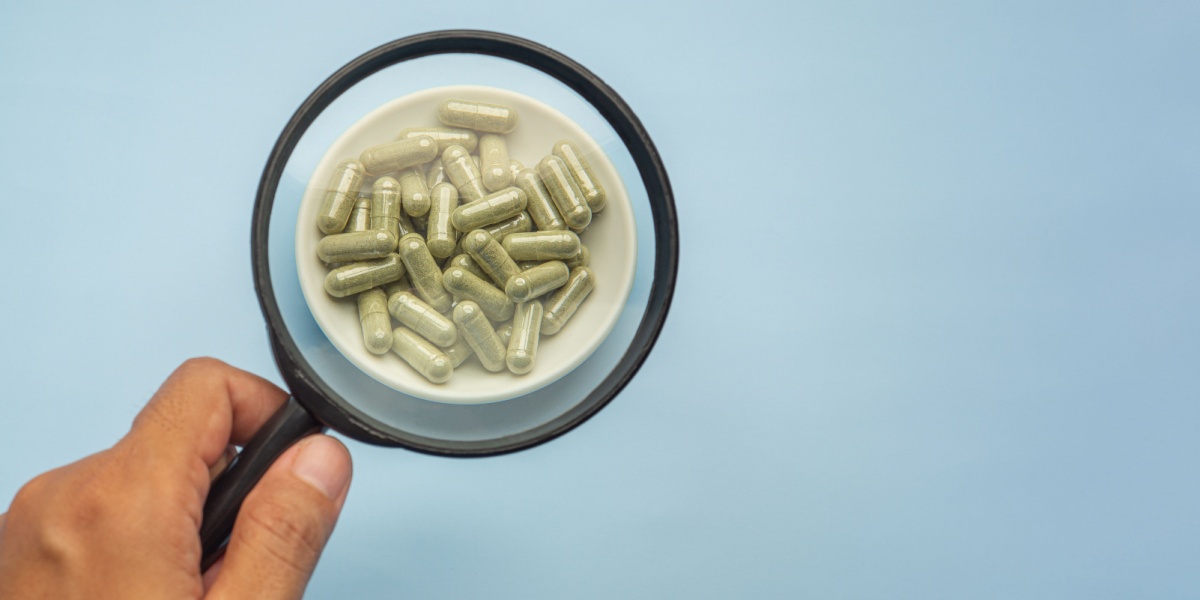7-hydroxymitragynine (7-OH) is a psychoactive compound that occurs naturally in the kratom plant and is being synthetically produced in high-concentration products that create opioid-like effects. The US Food and Drug Administration (FDA) warns that the increasing availability and use of 7-OH products could lead to a new wave of the opioid epidemic.

FDA's bold move: Why 7-OH products are now targeted for restriction
7-OH is not an approved or regulated substance, nor is it a dietary supplement. 7-OH products are being sold online and in stores and are either designed to look like candies and other treats or are inaccurately marketed as kratom.[1]
Because of its widespread availability and the risks of severe harm, the FDA has recommended that 7-OH products be scheduled under the Controlled Substances Act (CSA), which will allow for the federal control and regulation of these products. This decision is now in the hands of the Drug Enforcement Administration (DEA), which is reviewing the recommendation.[2]
Additionally, the FDA has issued warning letters to companies that have produced and illegally marketed 7-OH products. Some of these products are being sold as dietary supplements, which is illegal because 7-OH does not meet safety standards to be listed as such. Other products are marketed as drugs to relieve pain or anxiety symptoms, which is unlawful, as they are not approved medications and have not been tested or proven to be safe or effective.[3]
Addressing the confusion: Is natural kratom affected?
This restriction recommendation does not apply to natural kratom. 7-OH naturally occurs in the kratom plant, although it makes up less than 2% of the alkaloid content of the plant. This new recommendation for controlled substance scheduling applies specifically to synthetic 7-OH, as this substance is considered to be of particularly high risk and therefore requires immediate action.[2][4]
However, the FDA also warns against the use of kratom due to its potential for liver toxicity, seizures, abuse, and addiction. Kratom, and any products containing kratom, are not approved by the FDA for medicinal use or as dietary supplements.[8]
Also read: FDA Issues Sweeping Opioid Label Changes to Strengthen Safety
Health risks and abuse potential of 7-OH products
At the time of writing, 7-OH products can be bought with no prescription and are widely available. This is particularly risky, as these products can be bought by people of any age and offer no regulated advice regarding safety, dosage, and side effects.[3][4]
7-OH is a potent opioid that is reportedly 13 times stronger than morphine. Effects of 7-OH include euphoria, sedation, seizures, anxiety, depression, and respiratory depression. It is highly addictive and has also been found to cause severe withdrawal symptoms consistent with opioid withdrawal.[4][5]
Where are 7-OH products found?
7-OH products are sold online and in stores and gas stations. This means that they are available to anyone of any age. These products are designed to look harmless, like candies, gummies, ice creams, and drinks. This makes the products look appealing to children and can mean that people who buy and consume them may be unaware of their content and associated dangers.[1]
Some 7-OH products are being marketed as natural kratom, such as appearing to be the crushed or powdered leaf of the plant. Naturally, kratom contains very small amounts of 7-OH, meaning that these synthetic products are falsely advertised since they contain far higher concentrations.[1][3]
Where is 7-OH already banned?
In August 2025, Florida filed an emergency rule that classifies certain 7-OH products as Schedule I controlled substances, making it illegal to sell, possess, or distribute these products.[6]
In other states, regulations vary, although around half of all US states have some legislation in place that limits the sale of kratom-related products, including 7-OH. Many states have raised the minimum purchase age of these products to 21. Some states, including Louisiana and Arkansas, have banned kratom, although Florida is the only state to have specifically banned 7-OH.[7]
Some states have either banned the sale of synthetic kratom extracts or high-concentration 7-OH products or placed limits on the concentration of 7-OH permitted. Colorado has enacted a law specifically prohibiting kratom products from being sold as candies or products that might appeal to children.[7]
What this means for consumers, healthcare providers, and policymakers
If and when the DEA lists 7-OH as a controlled substance, this will change the laws and regulations around its sale and use. Controlled substances with approved medication uses can only be obtained legally with a prescription, and those without medicinal purposes (Schedule I) cannot be sold or bought at all.
Including 7-OH products on the CSA will prevent their sale in stores and online, limiting their availability and thus reducing their potential harm. New regulations may also serve to educate the public, healthcare providers, and policymakers about the dangers of this substance.
Next steps: How to stay safe and informed
The FDA posts updates about changes in drug approvals and scheduling regulations, which can be accessed by the public to stay informed about any developments. State regulations change frequently and quickly, so it is a good idea to keep up to date with your state’s laws. The FDA has also published an information guide for people to learn more about the dangers of 7-OH products.
To ensure the safety of yourself and others, never buy products containing 7-OH. Check the contents of any candies and other similar products when buying them to prevent accidental consumption of 7-OH.
If you have consumed 7-OH products unintentionally or are experiencing adverse effects from these products, contact Poison Help (1-800-222-1222) for advice or 911 for emergency support and treatment.

-person-thumbnail.jpg?v=1758880627)

_-New-Non-Opioid-Painkiller-Approved-For-Medical-Use78-blog-detail.jpg?v=1744194485)
-blog-detail.jpg?v=1756463852)